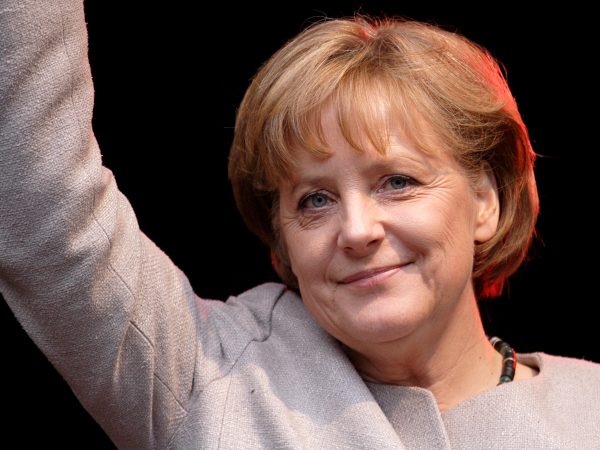Germany Chancellor Angela Merkel is on track to win a fourth term in upcoming national elections in spite of a dip in support for her conservative.
She has however shrugged off calls from far-right hecklers for her to quit.
Merkel has been repeatedly booed during the election campaign, particularly in Germany’s formerly Communist East.
This is an area where support is strongest for the anti-immigration Alternative for Germany (AfD), who are set to enter parliament for the first time.
An opinion poll published by the Frankfurter Allgemeine Zeitung daily put the AfD on 10 per cent, up two points since the end of August.
Merkel’s Christian Democrats (CDU) and their Bavarian CSU allies slipped two points to 36.5 per cent.
However, the CDU/CSU remains far ahead of the centre-left Social Democrats, which were down two points on 22 per cent, according to the poll conducted by Allensbach for the FAZ.
Meanwhile, the business-friendly Free Democrats edged up to 11 per cent.
“People who whistle and heckle contribute little,” Merkel told a CDU rally in the north-eastern port town of Wismar, not far from where she grew up.
Merkel was unperturbed when a man shouted “Traitor to the fatherland’’ during her speech, while several dozen supporters of the far-right National Democratic Party gathered outside, carrying posters reading “Merkel must go!’’
Hundreds of AfD party members and anti-Islam activists rallied together in the eastern city of Dresden on Monday.
They counted down the days to a vote set to make the AfD the first far-right group in Germany’s parliament in more than 50 years.
The AfD has capitalised on discontent over the influx of one million migrants into Germany in 2015 and 2016.
However, the other parties all refuse to work with the AfD and no one wants to sit next to them in parliament.
Merkel contrasted Tuesday’s hecklers with the contribution of 30 million Germans who are involved in voluntary associations, including those who help support refugees.
She said that the recent wave of migrants “should not and will not be repeated’’.
Another poll, conducted by Forsa for RTL television and Stern magazine, showed support for Merkel’s CDU/CSU bloc fell one percentage point in the last week to 36 per cent.
That was its lowest since April, while the SPD was unchanged on 23 per cent.
SPD leader Martin Schulz has been campaigning against inequality, but his message has failed to gain traction at a time when unemployment is at its lowest in decades.
The Allensbach poll showed that 21 per cent think the CDU has done the best job to address the issues that interest voters.
This is better when compared to 15 per cent for the SPD and 14 per cent for the AfD.
In fresh positive news from the economy, the Mannheim-based ZEW research institute said the mood among German investors improved more than expected in September as worries about the stronger euro faded.
The ZEW survey suggested markets expect Europe’s biggest economy to continue its solid performance in the coming months.
This is buoyed by record-high employment, rising real wages and ultra-low borrowing costs that are supporting a consumer-led upswing.
With Merkel’s conservatives commanding a solid poll lead, the main question in Germany now is who she will govern with after the election, rather than whether she will stay in power.
The latest polls put support for the far-left party Die Linke at nine-10 per cent, and the environmentalist Greens on eight per cent.
This means that only another grand coalition of Merkel’s conservatives with the SPD or a three-way alliance of the conservatives, FDP and Greens would have a stable majority.
The Allensbach poll showed 23 per cent of voters would prefer a coalition of conservatives with the FDP.
However, 14 per cent want a continuation of the current grand coalition and 10 per cent favour an alliance of SPD, Linke and Greens




 Premier League
Premier League